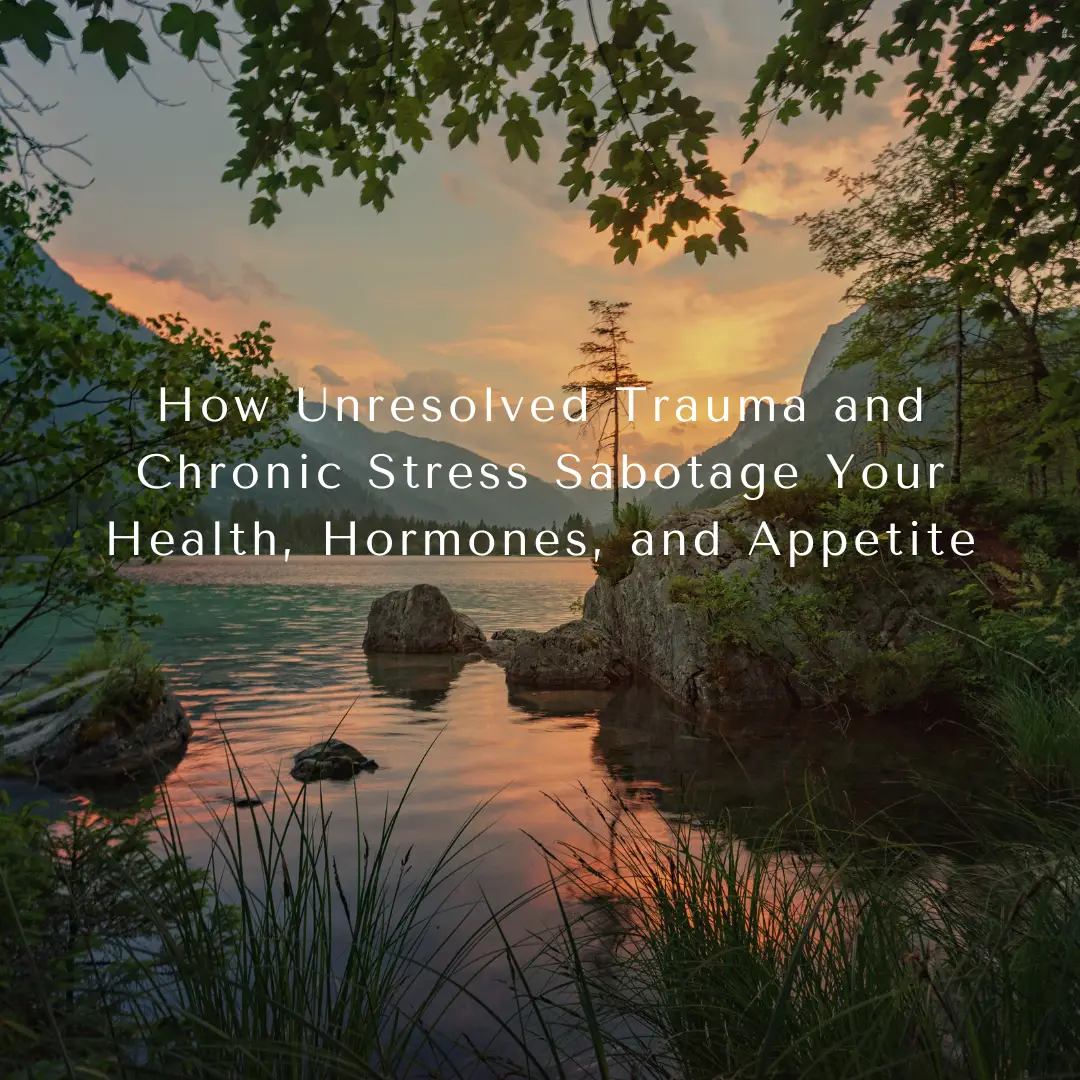Undealt, unmanaged, and unprocessed past trauma, along with chronic stress, can profoundly sabotage both physical and mental health. When trauma and stress are left unresolved, they trigger a cascade of negative effects on the body, particularly on the endocrine (hormonal) and nervous systems.
How Trauma and Chronic Stress Affect Our Health
When trauma or stress becomes chronic, the body enters a persistent state of fight-or-flight. This means that the stress hormone cortisol remains elevated. While cortisol is helpful in short bursts, chronic exposure can wreak havoc on the body:
Disrupted Hormonal Balance
- Cortisol imbalances can interfere with other essential hormones like insulin, thyroid hormones, estrogen, and testosterone. This hormonal chaos can lead to problems like weight gain, fatigue, insomnia, and irregular periods.
- The body’s natural appetite regulation gets skewed, either pushing people toward overeating for comfort or completely suppressing their desire to eat.
Physical Health Decline
- Chronic stress weakens the immune system, making the body more susceptible to illness and slow healing.
- Long-term stress also contributes to inflammation, which is a precursor to many serious conditions, such as heart disease, diabetes, and digestive issues.
The Impact on Accomplishing Goals
When trauma is left unprocessed, it creates emotional blockages. This can manifest as procrastination, self-sabotage, or a lack of motivation. Unresolved trauma often undermines self-worth and creates limiting beliefs, which can sabotage efforts to achieve personal, professional, or health goals. This leads to feelings of being stuck or incapable, perpetuating a cycle of stress and failure.
Weight Gain or Loss of Appetite: Two Sides of the Same Coin
Trauma and chronic stress disrupt the body’s appetite control mechanisms, which can manifest as overeating or loss of appetite, depending on the person’s coping mechanisms.
1. Unwanted Weight Gain
- For many, trauma triggers emotional eating or comfort eating as a way to cope with overwhelming feelings. Food, especially high-sugar or high-fat items, temporarily floods the brain with dopamine and serotonin, providing momentary relief from emotional pain.
- However, this is short-lived, and soon the cycle repeats, leading to weight gain. The body becomes addicted to these dopamine highs, leaving the individual constantly reaching for more food as a coping mechanism.
2. Loss of Appetite
- On the flip side, some individuals may respond to trauma and stress by completely shutting down their appetite. This is because the nervous system becomes so dysregulated that normal hunger cues are overridden.
- The body prioritizes survival (through the fight-or-flight response) over routine functions like digestion, leading to unintended weight loss and malnutrition over time.
Why Unresolved Trauma and Stress are So Dangerous
When trauma and stress are allowed to fester, they keep the body in a state of hypervigilance. This constant flood of stress hormones not only damages physical health but also perpetuates emotional suffering, leading to:
- Chronic anxiety and depression
- Inability to regulate emotions
- Sleep disturbances, worsening overall health
The Path to Healing
Processing trauma through therapy, personal health coaching, self-care, and mindfulness allows the body to return to a state of balance. When the trauma is addressed:
- Cortisol levels normalize, allowing the body to heal, regain its hormonal balance, and restore proper appetite signals.
- Self-sabotaging behaviors, like emotional eating or avoidance of food, diminish as emotional wounds heal.
- Clearer focus on achieving personal and health-related goals emerges, since trauma is no longer creating roadblocks.
By tackling past trauma and managing stress, the body can shift out of survival mode and thrive, leading to better mental and physical health, balanced hormones, and a restored appetite. This holistic healing approach empowers individuals to live a more fulfilled and vibrant life.
